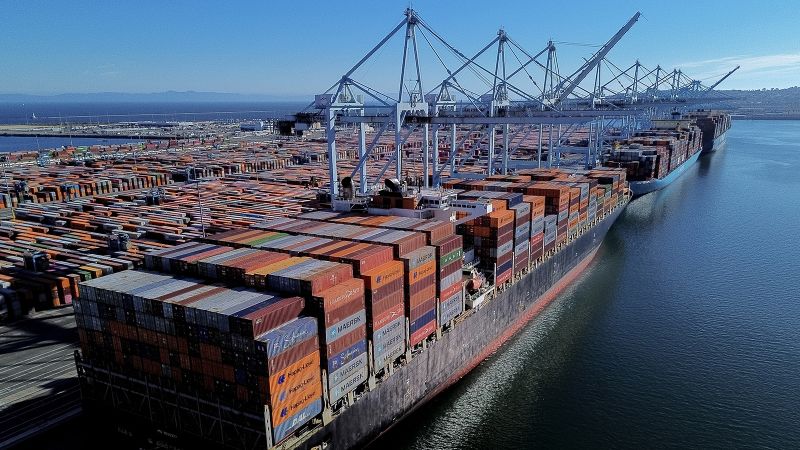Education
Economist Critiques US Tariff Threats as Global Bullying Tactic

Concerns are mounting over recent tariff threats issued by former President Donald Trump, which some economists describe as a form of coercion against global trade partners. In an interview with journalist Christiane Amanpour, Jason Furman, the former Chairman of the Council of Economic Advisers, expressed his views on the implications of such policies.
During the discussion, Furman emphasized that the United States is pressuring other countries to accept tariffs that could disrupt international trade dynamics. He stated, “The US is bullying the rest of the world into swallowing some of these tariffs.” His remarks highlight a growing concern about the potential repercussions these measures could have on the global economy.
In tandem with Furman, Gillian Tett, a columnist for the Financial Times, also contributed to the conversation, stressing the importance of understanding the broader implications of the US’s economic strategies. Tett pointed out that the unilateral approach taken by the US could lead to increased tensions with traditional allies and trading partners.
Impacts on International Relations
Furman elaborated on how these tariff threats might strain relations with countries that have previously benefitted from trade agreements. He warned that such tactics could alienate key allies and prompt retaliatory measures that would further complicate the already intricate web of international trade.
The discussion comes at a crucial time as the global economy faces numerous challenges, including inflation and supply chain disruptions. Analysts fear that escalating trade tensions could exacerbate these issues, leading to a potential slowdown in economic growth worldwide.
Tett noted that while the US economy is currently robust, the long-term repercussions of aggressive tariff policies may not be immediately apparent. She cautioned that other nations might seek alternative markets or develop their own trade alliances, which could diminish the US’s influence.
Future Considerations
As the situation develops, both Furman and Tett underscore the need for a more collaborative approach to international trade. They advocate for negotiations that promote mutual benefits rather than imposing tariffs that could be perceived as bullying.
The dialogue between Amanpour, Furman, and Tett reflects a significant concern among economists regarding the future of global commerce. With the potential for increased tariffs looming, the real test will be whether the US can navigate these challenges without alienating its partners.
In summary, the perspective from these experts provides a critical lens through which to view the current economic climate. Their insights into the implications of tariff threats serve as a reminder of the delicate balance that must be maintained in international relations and trade policies.
-

 Technology5 months ago
Technology5 months agoDiscover the Top 10 Calorie Counting Apps of 2025
-

 Technology3 weeks ago
Technology3 weeks agoOpenAI to Implement Age Verification for ChatGPT by December 2025
-

 Health3 months ago
Health3 months agoBella Hadid Shares Health Update After Treatment for Lyme Disease
-

 Health3 months ago
Health3 months agoAnalysts Project Stronger Growth for Apple’s iPhone 17 Lineup
-

 Health4 months ago
Health4 months agoErin Bates Shares Recovery Update Following Sepsis Complications
-

 Technology5 months ago
Technology5 months agoDiscover How to Reverse Image Search Using ChatGPT Effortlessly
-

 Technology3 months ago
Technology3 months agoElectric Moto Influencer Surronster Arrested in Tijuana
-

 Technology5 months ago
Technology5 months agoMeta Initiates $60B AI Data Center Expansion, Starting in Ohio
-

 Technology2 months ago
Technology2 months agoDiscover 2025’s Top GPUs for Exceptional 4K Gaming Performance
-

 Technology5 months ago
Technology5 months agoRecovering a Suspended TikTok Account: A Step-by-Step Guide
-

 Health5 months ago
Health5 months agoTested: Rab Firewall Mountain Jacket Survives Harsh Conditions
-

 Lifestyle5 months ago
Lifestyle5 months agoBelton Family Reunites After Daughter Survives Hill Country Floods





















